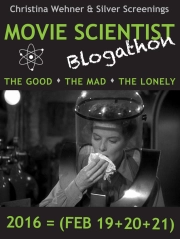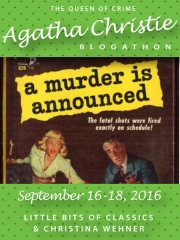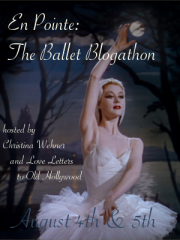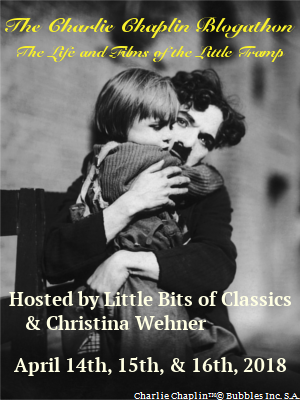 I have not seen any Planet of the Apes movies, but I’ve been intending to go on a Planet of the Apes watching spree – from 1968 to 2014. However, before I do so I wanted to read the novel that begat such a long-lived franchise.
I have not seen any Planet of the Apes movies, but I’ve been intending to go on a Planet of the Apes watching spree – from 1968 to 2014. However, before I do so I wanted to read the novel that begat such a long-lived franchise.
Planet of the Apes was published in 1963 and was authored by Pierre Boulle (who also penned the novel The Bridge Over the River Kwai in 1952). He was a Frenchman who worked as a spy for the British during WWII, but was turned in by a Vichy Frenchman and spent two years in a prison camp until he escaped.
Most people know the basic idea of the story. Space/time traveler/journalist Ulysse Merou travels through space from Paris with an eccentric, brilliant professor and his assistant to the distant star of Betelgeuse. They leave fully knowing that when they return to earth, thousands of years will have passed. But when they arrive on the planet (Soror) that circles the star, they find things to be rather different than they expected.
The planet is very much like earth, except the humans are like animals and apes are the sentient beings – the orangutans, gorillas and chimpanzees.
I wasn’t exactly sure what to expect of Planet of the Apes. I had my dim notions gleaned from references to the movies, but the book proved somewhat different. At first I thought it was a satire of human civilization…the airs we give ourselves, the assumptions of our own natural superiority, the behavior we consider natural, but seems grotesque when carried out by another species of animal.
The apes cut off the hair of humans and wear it in their hats, they hunt humans, they conduct scientific experiments on humans. Even the idea of humans wearing clothes strikes the apes as absurd, just as humans see no need for apes to be attired. Poor Ulysse is reduced to walking everywhere stark naked.
They even have their own stratified society, with chimpanzees being historically persecuted and gorillas historically the aristocrats of society.
The humans on Soror, on the other hand, are like animals, with no spark of intelligence. Ulysse is startled when he meets a gorgeous woman, whom he calls Nova, who he finds physically attractive, but with no soul to respond to him other than has a pet mind responds to an owner.
On the other hand, he forms a deep spiritual bond with Zira, a female chimpanzee scientist. He convinces her of his intelligence through geometry and they bond closely, though they cannot get over the physical repugnance they feel for each other’s appearance. He cannot help feeling physically attracted to Nova, but it is only with Zira that he finds emotional and intellectual communion.
Oddly enough, I found it difficult to really imagine Zira has a chimpanzee while reading, because she is presented as so warm and human. I’m curious to see how much of this would-be romance subplot makes it into any of the movies.
But by the second half of the novel, I realized that the point of the story was not satire, but a look at how the barrier between being savage and civilized is wafer thin. The professor who had traveled with Ulysse becomes so accustomed to captivity and being treated as an animal that he reverts to animal-form. All spark of comprehension and higher feeling is completely extinguished and he acts just like all the other humans. Even Ulysse finds it startlingly easy to drift into a kind of complacence.
While held captive with the other humans – before it is realized that he is on their intellectual level – he finds himself being taken care of, falling into habits of wanting to please the chimps to earn food, trying to match their expectations and just generally letting himself go. He is only saved from this by Zira.

Charlton Heston and Kim Hunter – they couldn’t bring themselves to kiss in the book (though they almost get swept away by the their deep bond), but they couldn’t get over how ugly the other looked
In fact, Zira’s scientist fiance – Cornelius – discovers that chimpanzees did not evolve into sentient beings first on Soror, as was previously believed. Instead, he discovers that humans were the dominate species on earth, but taught apes to imitate them. Through imitation, they learned intelligence and while they grew more intelligent, humans grew lazy and unmotivated, slipping gradually back into primitivism while apes took over the world.
And that is Pierre Boulle’s central point: civilizations inevitably die away, people grow lethargic and contented, happy to be taken care of, losing all motivation and desire to push forward and instead slip backwards. It’s de-evolution. In the book (unlike the 1968 movie) there is no nuclear war or folly that brings about the demise of humans, but merely the natural course of nature. And the same thing is destined to happen to the apes, the author suggests.
There is a twist at the end of the book, but it is not the twist of the movie. There is also a framing story: two lovers floating around space who find a message in a bottle that contains Ulysse’s story. There is a kicker to this framing story, but I don’t want to spoil it.
Over all, I found it a fascinating book. The tone is initially lightly-ironic, sometimes mocking. But there is also an increasingly grotesque horror that pervades the book. I am curious to see how the movies compare with this book…and it’s message.








thoughtsallsorts
August 9, 2016 at 11:54 am
Great post. I’ve always wondered about the novel. I have it somewhere (one of those you pick up at second-hand bookstores purely because you think you should have them in your collection) and, having just finished off a book, I may just pull it out – solves my “what to read next” dilemma. But based on your review, is also good.
LikeLiked by 2 people
christinawehner
August 9, 2016 at 1:01 pm
Thanks! It’s funny how one can accumulate used books and then not read them for a while. I have a bunch of those kinds of books, too, that I keep promising myself I’ll read. But I thought Planet of the Apes was unexpectedly interesting. Have you seen any of the films?
LikeLiked by 1 person
thoughtsallsorts
August 9, 2016 at 10:00 pm
I’ve seen the 2001 Planet of the Apes with Mark Wahlberg and just recently gave Dawn of the Planet of the Apes a go. I’m not totally convinced by either of them 😦
LikeLiked by 1 person
christinawehner
August 10, 2016 at 10:35 am
That’s too bad they weren’t better. I’d heard that, oddly enough, the Wahlberg one is, in some ways, the closest to the book, but yet it seems to be rated the the least successful of the movies. I guess it shows that sticking to a book does not always work on film.
LikeLiked by 1 person
thoughtsallsorts
August 10, 2016 at 11:54 am
Have you seen any of the others?
LikeLike
christinawehner
August 10, 2016 at 12:03 pm
Not yet…I was going to start with the original 1968 film and go through them in order…over probably a fairly extended period of time. 🙂
LikeLiked by 1 person
thoughtsallsorts
August 10, 2016 at 10:09 pm
Sounds like a great plan! Good luck with that. Let me know how it goes/went.
LikeLiked by 1 person
christinawehner
August 11, 2016 at 11:36 am
Thanks so much! I think I’m going to review the ’68 film next week.
LikeLike
Eric Binford
August 9, 2016 at 1:15 pm
Such a great post, Christina! I love the the franchise, I’m a huge fan of the 1968 movie, but never read the book. After you watch the films, I recommend you to watch the terrific 2-hour documentary Behind the Planet of the Apes, narrated by Roddy McDowall. It’s interesting to see how early drafts of the screenplay did try to stay close to the book. If memory serves me well, the producers were afraid of the book’s hints of bestiality. Anyhow, interestingly, The Bridge on the River Kwai was written as a satire too (it mocks British Imperialism). David Lean decided to get rid of the humor.
LikeLiked by 1 person
christinawehner
August 9, 2016 at 4:58 pm
I will definitely have to look for the documentary after watching the original Planet of the Apes – thanks! It’s interesting that you mention bestiality. Now that you mention it, I can see why they were concerned, but it’s funny that when I was reading the book I didn’t think of it in those terms. I think it must be because of how much Pierre Boulle reverses our usual expectations. He almost suggests it is bestiality for the hero to have sex with a human (because she is just like an animal or beast), while Zira almost seems human despite her ape appearance.
That is interesting that the novel Bridge Over the River Kwai is also a satire. I’d like to read that one, too. I saw the movie years ago and don’t remember a lot of humor or satire.
LikeLiked by 1 person
FictionFan
August 9, 2016 at 4:56 pm
I wasn’t aware that there was a book – I assumed the films stood alone. Intriguing! And it sounds well worth a read…
LikeLiked by 1 person
christinawehner
August 9, 2016 at 5:22 pm
It is rather fascinating…and a very quick read! It was my brother who actually alerted me to the existence of the book. All I knew about was the movie, too…
LikeLiked by 1 person
Silver Screenings
August 13, 2016 at 8:23 am
I’m really keen to hear your thoughts on the movies now that you’ve read the book. In fact, you’re the only person I know who’s read the book before seeing the films.
I’m curious about the book, but have not come across it…however, I haven’t made a great effort to track it down. You’ve encouraged me to look for it at the library.
You’ve also got me curious about Pierre Boulle himself. I just did a quick online search and, according to a BBC article, he wrote the conclusion to his books first, then worked his way backwards.
Thanks for a thought-provoking read! 🙂
LikeLiked by 1 person
christinawehner
August 13, 2016 at 2:02 pm
Fascinating – that is an unique way to approach writing a novel! I wonder if that is how he conceived of his ideas – as exciting finales or set pieces that he then built a story around.
He is a rather fascinating person, isn’t he? It is curious how he seems somewhat overlooked today considering the iconic movies he inspired! I’d never heard of him until my brother mentioned him and was really surprised that he’d written The Bridge On the River Kwai…never would have guessed.
I actually just watched Planet of the Apes (with Heston) several days ago and want to review it next week. I was a little surprised….it wasn’t quite what I was expecting…but I really enjoyed it. It was sufficiently different, so that reading the book first didn’t mess with the fun of seeing the movie. 🙂
LikeLiked by 1 person